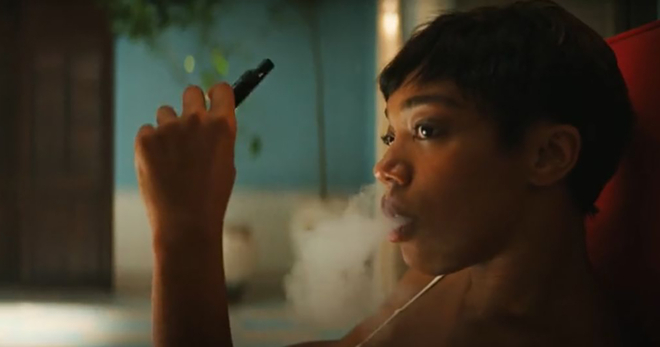Investigation reveals tobacco companies are secretly using social media to promote smoking
The four largest tobacco companies are using social media in more than 40 countries to promote tobacco use without disclosing that they financed the content, according to an investigation led by the Campaign for Tobacco-Free Kids.
Tobacco companies are recruiting and incentivizing young people with large social media followings to be influencers for their cigarette brands, according to the two-year investigation. The influencers — who are not based in the U.S., but have large U.S. followings — receive instructions on what cigarettes to promote, when to post content for maximum exposure and how to take natural photos that don’t look like cigarette ads. In one case, the investigation found that influencers were even instructed to cover up the health warning labels on cigarette packs before posting on social media.
Failing to disclose a connection between the endorser and seller of an advertised product —including a business relationship, monetary payment or free products — violates Federal Trade Commission guidelines. That’s why Truth Initiative® has joined the Campaign for Tobacco-Free Kids and other public health and medical groups to petition the FTC, asking the agency to promptly investigate and take enforcement action against the four tobacco companies — Philip Morris International, British American Tobacco, Japan Tobacco International and Imperial Brands — for deceptive social media advertising targeted toward American youth.
The investigation discovered that a business relationship has existed between the influencers and the tobacco companies through either a marketing or public relations company or, in some cases, direct payments and incentives. For example, in Italy, influencers are paid by a third-party marketing agency to post Instagram content that promotes Lucky Strike cigarettes for the “Like Us” campaign.
The petition alleges that these activities overseas are clearly designed to penetrate the U.S. market and target young American consumers, as they use almost exclusively English words and American imagery. These social media campaigns for tobacco products have been viewed at least 8.8 billion times in the U.S. and 25 billion times globally, according to the petition.
While the medium has changed, these tobacco companies are engaging in the same deceptive tactics they have for decades. In 2006, a historic legal decision and a 1,683-page court opinion, which followed six years of litigation and a nine-month trial, found that cigarette manufacturers committed a decades-long conspiracy to mislead the American public. While tobacco companies are fulfilling a requirement from that court decision to issue corrective statements about the health effects of tobacco use, they are still using deceptive and misleading advertising tactics — this time on social media.
As the petition states, “Given the tobacco industry’s fraudulent history perpetrated against the American public” and “current deceptive online global marketing Influencer campaigns reaching American consumers — with a high likelihood of exposure to U.S. teens — via social media, the Federal Trade Commission should take prompt action to investigate and stop deceptive online advertising.”
For more information, read the New York Times article and the statement about the petition.
More in tobacco in pop culture
Want support quitting? Join EX Program
By clicking JOIN, you agree to the Terms, Text Message Terms and Privacy Policy.
Msg&Data rates may apply; msgs are automated.


